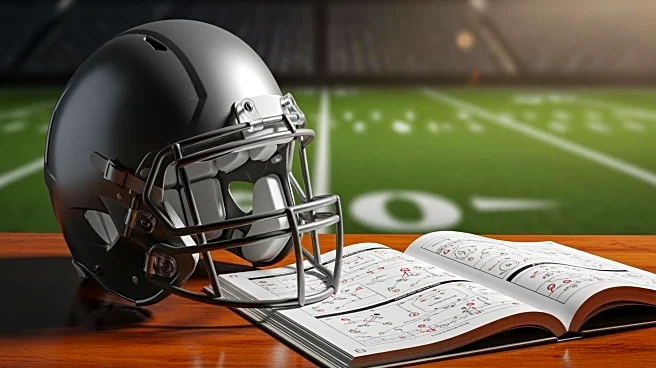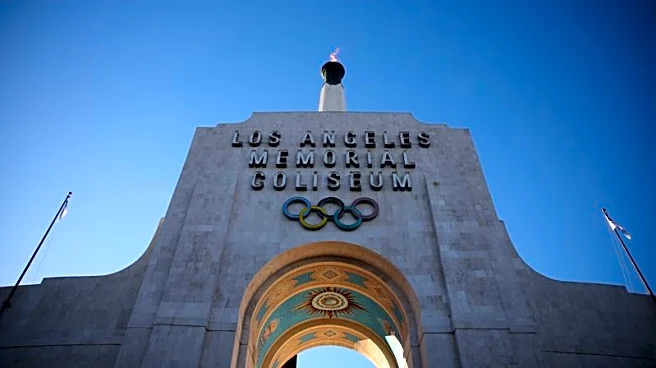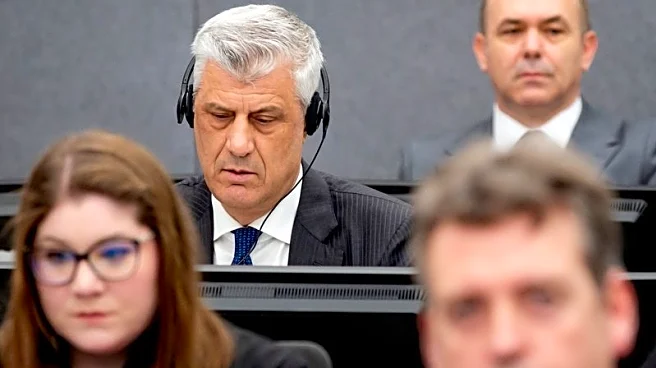What's Happening?
Myles Garrett, defensive end for the Cleveland Browns, is actively seeking solutions to improve the team's performance following a disappointing start to the season. Despite Garrett's individual success, including surpassing Reggie White's record and setting
a new team record for sacks in a game, the Browns have struggled to translate these achievements into wins. Garrett has been engaging with coaches and players to find ways to turn the season around, but the consensus is that there are no immediate answers. The Browns' roster and strategies have not been sufficient to overcome their challenges, leading to frustration among fans and players alike.
Why It's Important?
The Browns' ongoing struggles have significant implications for the team's future and its fan base. With the team failing to meet expectations, there is growing pressure on the management and coaching staff to make changes. The potential for firing the coach or general manager, as well as a quarterback change, looms as fans demand accountability and improvement. The team's performance impacts not only its standings but also its financial prospects, including ticket sales and merchandise. The situation highlights the challenges of maintaining fan loyalty and the importance of strategic decisions in professional sports.
What's Next?
As the season progresses, the Browns will need to evaluate their strategies and personnel decisions. Owner Jimmy Haslam has indicated that head coach Kevin Stefanski and general manager Andrew Berry are likely to remain in their positions, suggesting stability in leadership despite the team's struggles. However, the pressure to deliver results will continue, and changes in player roles or tactics may be considered. The team and its supporters will be watching closely for any signs of improvement or further setbacks.
Beyond the Headlines
The Browns' situation underscores the broader challenges faced by sports teams in balancing performance with fan expectations. The ethical considerations of player management, contract negotiations, and the impact of public pressure on decision-making are critical aspects of professional sports. The team's struggles also reflect the cultural significance of sports in American society, where teams are not just entertainment but also community symbols.

















